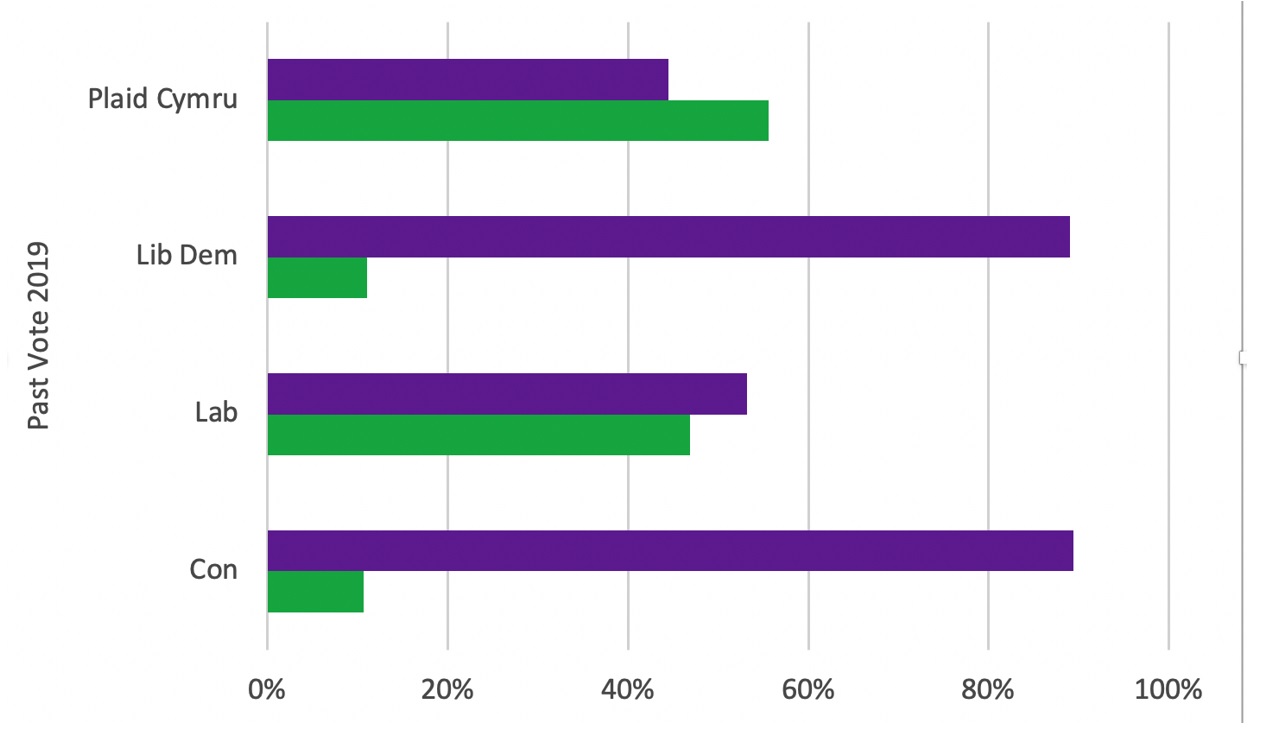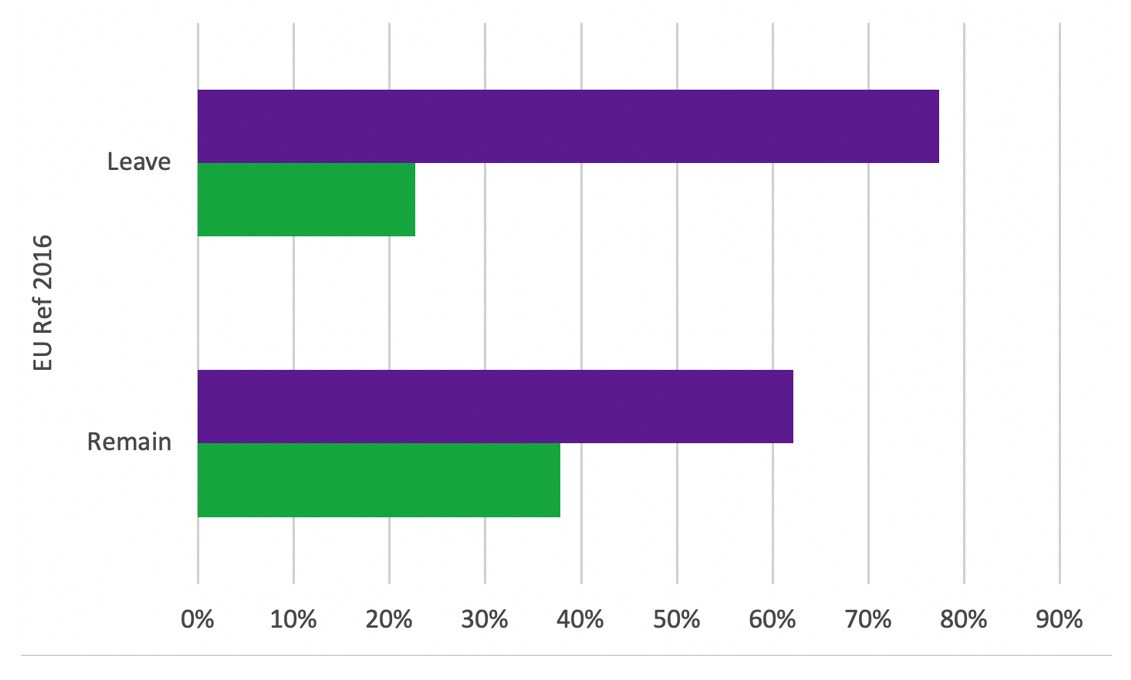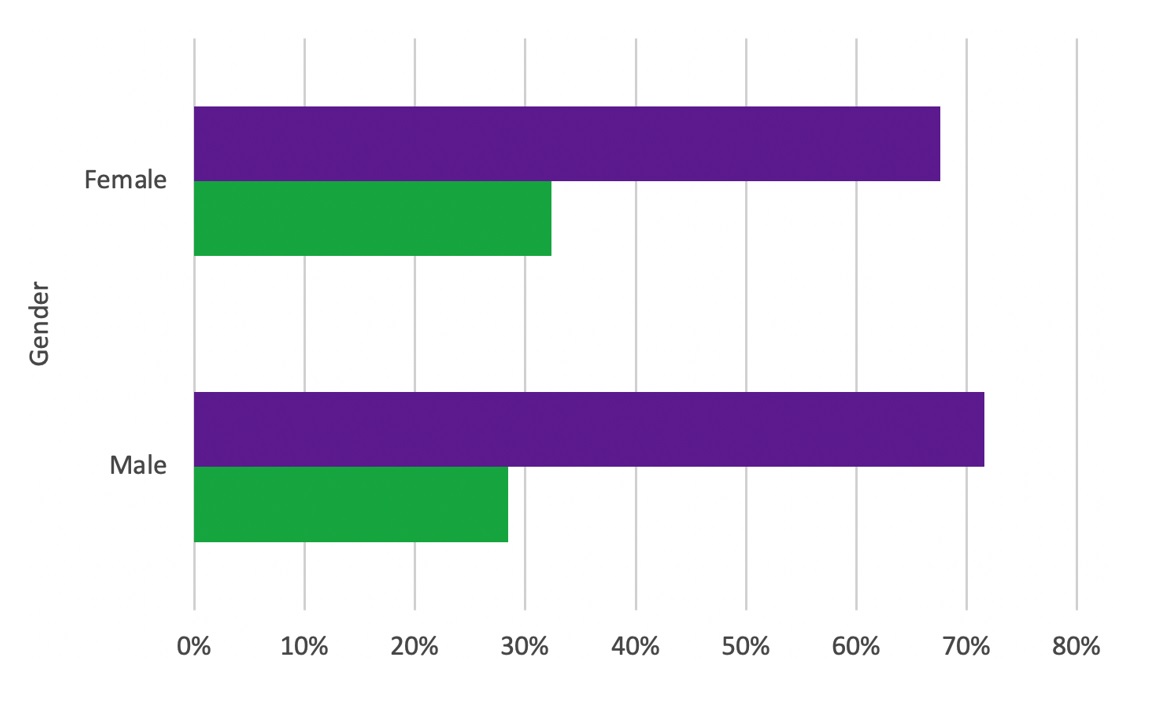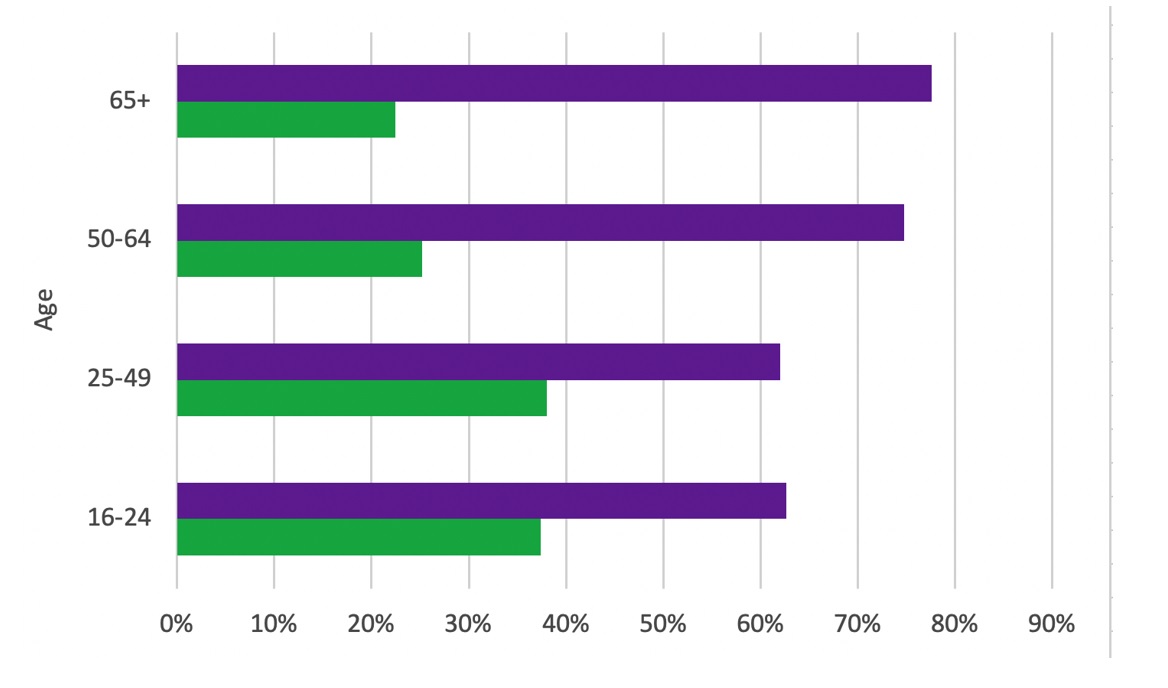YesCymru has the momentum – but polls show there’s plenty of work to be done

Dafydd Trystan
The past weeks have seen enormous growth in the membership of YesCymru. At its most dramatic membership was growing by a thousand a day, and the membership has more than doubled within the past 12 months.
But is this growth in membership reflected in broader attitudes amongst the Welsh population?
The overall pattern of growth in support is modest. YouGov have polled consistently on the question ‘If there was a referendum tomorrow how would you vote?’ and we find as in previous polls that just under a third of the Welsh electorate would support independence.
| Nov 19 | Jan 20 | Aug 20 | Nov 20 | |
| Yes | 28 | 27 | 32 | 30 |
| No | 72 | 73 | 68 | 70 |
[For each poll the Don’t Knows and Would not Vote are excluded from the headline figures]
So who are these people that support independence?
Here we find some very interesting patterns. In this graph and subsequent graph Yes voters are represented in Green, No voters in purple:

We should always treat these figures with caution as the numbers in each category are relatively small (particularly so for Liberal Democrat voters) however the pattern here is clear. Both Conservative and Lib Dem voters reject independence pretty clearly.
The picture for Labour and Plaid Cymru is more mixed. Amongst Labour voters, almost half say that they would vote Yes in an independence referendum, while (perhaps surprisingly) some 40% of Plaid voters would vote No!
We find a less dramatic division when one looks at Brexit support (or not). Here we find that Remain voters are more likely to support independence than leave voters, but in both cases, a majority would oppose independence.

On gender, there is barely any difference, with women a little more positive towards independence than men.

The patterns on age however are much more striking with almost two out of five of the under 50s supporting independence, while barely one in five of the 65+ age group do so.

Where does this leave YesCymru? With a significant membership, but with a considerable amount of work to do persuade the people of Wales to support independence.
Worries
There may be some hints as to what needs to be done in a recent WalesOnline online poll on independence. Now the dangers of online polls where individuals can choose to take part are well documented and therefore we cannot rely on this poll to be representative – that much is confirmed by the finding that a majority of respondents to WalesOnline would favour independence.
However, if we remember the context that the respondents to this poll are considerably more positive about independence than the electorate at large, there are subsequently a number of questions that follow which are quite revealing.
Most interesting perhaps is the fact that the percentage of respondents who thought Wales was badly served by the UK Government was considerably higher than the percentage who backed independence.
This suggests that a substantial minority of those opposed to independence take a positive view of the Welsh Government alongside a negative view of how the UK Government looks after Welsh interests.
Respondents were also asked whether Brexit and COVID had shifted their views on independence. Brexit seemed to have had a clear (positive) impact on support for Welsh independence, as evidenced by the numbers who also said they would like to see Wales as an independent member of the EU.
The picture, however, is more mixed on COVID with around 1/3rd suggesting it makes them more likely to support independence while a quarter report it makes them less likely to support independence.
Finally looking to the economy, despite the support for independence within this group of respondents there are worries about how an independent Wales would fare economically, as well as a desire to retain the pound. Despite 56% saying they would support an independent Wales, only 51% said they thought Wales could survive economically as an independent country.
Overall, therefore, the survey suggests that YesCymru’s strength is a growing disillusionment with how Westminster is running Wales and the realisation that the Welsh Government can do a better job.
YesCymru’s Achilles heel, however, remains questions about the economy. I suspect therefore that as the economic challenges develop over the next few months, the strategy for YesCymru may well be to sustain and develop support based on the economic case for Welsh independence.
Support our Nation today
For the price of a cup of coffee a month you can help us create an independent, not-for-profit, national news service for the people of Wales, by the people of Wales.






